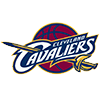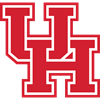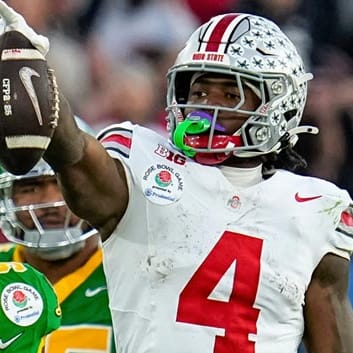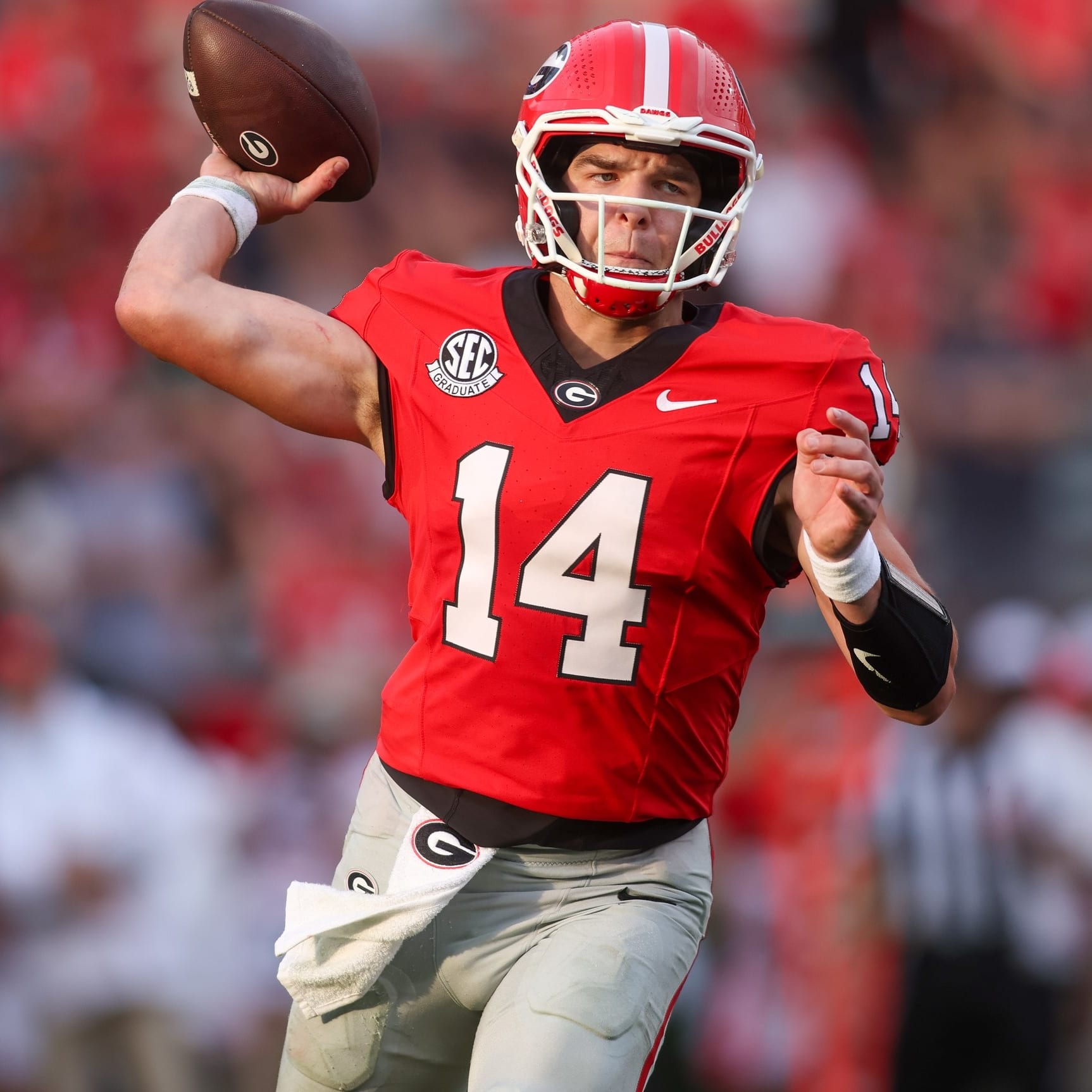This week I'll talk about some draft-eligible college prospects who I think may be overlooked a bit at the moment. These guys aren't conventionally regarded as top-10 types at their respective positions, but I think there's a good chance that changes by the winter.
Listed in a loosely ascending order of NFL fantasy potential...
Rico Dowdle, RB, South Carolina (5-foot-11, 215 pounds)
(Junior)
Dowdle was a low-level three-star recruit – unimpressive by South Carolina standards – but in his 2016 freshman year he made a good case that he had been underestimated. Although 2017 injury troubles have his stock down, it's worth recalling his first season when considering his projection.
Dowdle turned 20 in June, so he was 18 when he broke out as a freshman in 2016, playing in nine games and finishing with 764 yards (5.7 YPC) and six touchdowns. Including last year he's seen 34 targets in his 17 career games, resulting in 26 receptions for 183 yards (76.5 percent catch rate, 5.4 YPT), so he seems fairly developed as a receiver.
If Dowdle can bounce back from the broken leg and hamstring troubles that plagued him in the past year and regain his 2016 form at between 215 and 220 pounds, he could have the three-down skill set necessary to realistically fight for NFL snaps.
Projected round: 4-UDFA
Andy Isabella, WR, Massachusetts (5-foot-10, 195 pounds)
(Senior)
Isabella is almost certainly 5-foot-9, but he shows off surprisingly good speed for a player of such modest recruiting pedigree, and his production is otherwise stellar. If the apparent speed on tape shows up in his athletic testing, Isabella could project as one of the best slot prospects in the 2019 draft.
Isabella has been one of college football's best receivers over the last two years, totaling 1,821 yards and 17 touchdowns on 217 targets, averaging 8.4 yards per target in a stretch where UMass averaged 7.5 yards per pass attempt. He did this despite the Minutemen possessing a handful of other competent pass catchers in the last two years, namely tight end Adam Breneman, who might have been a Day 2 NFL draft pick if not for a career-ending knee issue.
In addition to the strong per-target production, Isabella posted good share percentages the last two years. With respect to his targets, receptions, receiving yardage, and receiving touchdowns, Isabella posted share percentages of 24.6, 24.2, 27.4, and 32.1.
Projected round: 4-UDFA
Karan Higdon, RB, Michigan (5-foot-10, 202 pounds)
(Senior)
Higdon doesn't lack for reputation – he's the most feared runner on the Michigan roster after breaking out last year to the tune of 994 yards (6.1 YPC) and 11 touchdowns in 13 games, adding eight receptions for 131 yards on 14 targets. He wasn't a notable recruit by Michigan standards, though, as he was only a high three-star, and he might remain overlooked since he doesn't project for a big NFL workload at just 202 pounds.
Given the prevalence of running back rotations in the modern NFL, however, players with Higdon's traits shouldn't go overlooked. He added more than 10 pounds of mass this offseason and yet, according to WolverinesWire he's still running in the mid-to-high 4.4s. Higdon isn't a burner, but his speed is good enough to break the edge reliably, and his combination of balance, burst, and anticipation otherwise seem well above the average. His lateral movement is exceptional, and he appears a natural receiver despite his modest volume of production in that category at Michigan. Higdon could be a more athletically gifted version of the Dion Lewis mold.
Projected round: 3-6
Emanuel Hall, WR, Missouri (6-foot-3, 200 pounds)
(Senior)
Hall probably can match or exceed the upside of the players following him on this ascending list, but I think the risk is also higher, so I'll be ranking him behind the three receivers following him on this list. The upside scenario is probably something like Javon Walker, with the lower-range outcome something like Troy Williamson, Justin Hunter, or Tommy Streeter. Perhaps Marques Valdes-Scantling can serve as a sound mid-range comparison.
What we know for sure is that Hall is very fast, and probably one of the top all-around athletes in college football. He's one of the nation's most feared deep threats, and he could possess a 40-yard dash in the mid or low 4.3s. The tools are there, no doubt. The production has generally been good, too – he needed just 54 targets last year to total 817 yards and eight touchdowns on 33 catches (24.8 YPR, 15.1 YPT). With J'Mon Moore gone to the NFL, Hall will have an opportunity to reach even greater heights in 2018.
Hall has two questions facing him in the meantime, however: (1) durability and (2) versatility. He missed time with shoulder and hamstring troubles last year, and this spring he suffered a shoulder injury that kept him out around two months. His skill set may be rather limited at this point, too, because he mostly just ran fly routes to this point in his Missouri career. He'll be tasked with executing a more varied route tree this year, and how he adapts to those new demands will go a long way in clarifying his draft stock.
Projected round: 1-5
Tyler Johnson, WR, Minnesota (6-foot-2, 200 pounds)
(Junior)
Although he won't turn 20 until August 25, Johnson has already compiled some highly promising numbers. Specifically, Johnson posted D.J. Moore-like share percentages as a sophomore last year. To look only at Johnson's aggregate production would be a huge mistake, because he was far more effective than you'd guess from his total of 35 receptions for 677 yards (19.3 YPR) and seven touchdowns in 10 games.
The Minnesota passing game was dreadful last year, but it was more of a pro-style look than the pseudo-option offenses the Gophers ran under Jerry Kill. So you can't chalk up his absurd share numbers to the scheme like you would a Navy or Georgia Tech receiver.
With that noted, Johnson's respective share percentages of 33.3, 47.3, and 77.8 for receptions, receiving yardage, and receiving touchdowns are bonkers. Johnson posted those ridiculous numbers on just 72 targets, or 33 percent of Minnesota's pass attempts in the games for which he was active. His output in all categories smashed the target share percentage to the point that he all but compels football observers to consider him one of the best receivers in the country already. His trajectory right now is a remarkable one – in addition to the fact that he isn't even yet 20 years old, you can find further hint of developmental upside in the fact that Johnson didn't even play wide receiver until two years ago – he was a quarterback in high school. Something is different about this guy.
Projected round: 2-4
Mecole Hardman, WR, Georgia (5-foot-11, 183 pounds)
(Junior)
Hardman switched from cornerback to wide receiver following the 2016 season, and the results from last year indicate he's a quick study. A former five-star recruit, Hardman's pedigree and tape both imply high-grade athleticism, and if he can further develop his wideout skill set there could be enormous potential to harness.
Hardman unsurprisingly started slow upon switching to receiver, but his role increased as the season went along, and by the end he was established as Georgia's top big-play threat at receiver. He finished with 25 receptions and 418 yards and four touchdowns on 38 targets, good for a catch rate of 65.8 percent and 11 yards per target. He consistently provided big plays on the ground, too, totaling eight carries for 61 yards and two touchdowns.
When you turn on the tape, Hardman immediately stands out for his athleticism. It's tough to guess numbers right now, but he could grade highly in all of the 40, agility drills, and jumps. He plays with a high-motor demeanor and profiles as a potential plus threat on deep routes and after the catch alike. If his best-case scenario occurs, a T.Y. Hilton-like future could be the result.
Projected round: 1-3
Jaylen Smith, WR, Louisville (6-foot-4, 223 pounds)
Smith can't seem to get any hype and I don't understand why. I was buying in a year ago following a sophomore season where Smith finished with 599 yards and six touchdowns on just 27 catches and 46 targets (58.7 percent catch rate, 13.0 YPT). I thought he'd prove a clear upgrade over the graduating James Quick and Jamari Staples, both of whom were invited to the NFL Combine.
Smith didn't disappoint in his expanded role as a junior, finishing with 60 receptions for 980 yards and seven touchdowns on 103 targets despite missing three games with a wrist injury. By averaging 9.5 yards per target, Smith for the second year in a row outpaced his teammates, even while playing next to two other formidable prospects in Dez Fitzpatrick and Seth Dawkins.
Smith just turned 21 on August 1, making his age-adjusted production that much more impressive. When you outplay other good players at a young age, that's a great sign for projecting NFL upside. In the 10 games Smith played last year, he earned the following share percentages for receptions, receiving yardage, and receiving touchdowns, respectively: 30.6, 34.9, and 31.8. All those numbers outpace his target share percentage of 30.2.
I would guess Smith is a high 6-foot-2, rather than the 6-foot-4 he's listed at, and he doesn't display any obviously elite athletic traits on tape. But he's clearly a pretty good one at the least, and to otherwise explain his superb production you would necessarily concede he possesses an advanced skill set. Although his reputation is that of a tall downfield threat, Smith is comfortable running drag routes and playing over the middle generally, so in terms of skill set I absolutely think he would carry a WR1 grade. I think he has similarities to Amani Toomer or someone like that, with his worst-case scenario something like Nick Toon.
Projected round: 1-3










































